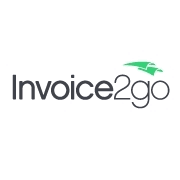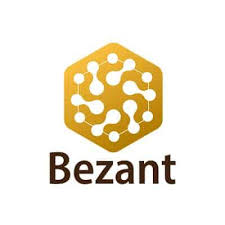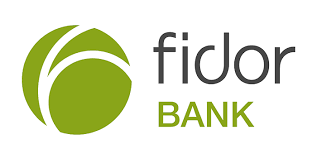Published
- 09:00 am

Invoice2go, a mobile app that makes it effortless for small businesses to track work and get paid, led the charge today for small business owners by delivering a new way for their invoices and bills to take priority in their clients' inboxes, and get paid faster.
Soon hundreds of millions of Outlook customers will be able to pay invoices and bills from right inside their inbox. Payments in Outlook with Microsoft Pay provides a secure and frictionless payment experience. Over the coming months, this capability will be enabled for Invoice2go customers sending digital invoices with Stripe as the payment service. Invoice2go is used by its customers to send over $2 billion in invoicing each month.
CEO of Invoice2go, Greg Waldorf:
"Small businesses and solopreneurs worldwide share a common challenge: getting paid on time. By making invoices payable within Outlook with Microsoft Pay, our customers are suddenly offering their clients one of the most powerful shortcuts available for paying invoices in a fast, seamless manner."
Director, Product Marketing Ecosystem, Microsoft Corp., Mike Ammerlaan:
"We are excited to see companies like Invoice2go bring new benefits to their users by integrating their solutions with Microsoft Outlook," said Mike Ammerlaan, Director, Product Marketing Ecosystem, Microsoft Corp. "Invoice2go's integration is the exact type of technological solution that ensures small businesses are in a position to leverage the very best technology in market to further their business goals."
Related News
- 04:00 am

AKJ Traditional platform, the leading turnkey, tier one hedge fund platform was announced 'Winner of Best Hedge Fund Platform - Emerging Funds' at the 2018 HFM European Services Awards. Owned and managed by AK Jensen Group, the AKJ Traditional platform provides a single, integrated legal and regulatory infrastructure, enabling fund managers - from start-up to the highest level - to setup and run viable funds.
2017 has been a year of innovation and growth for the Group, with the development and launch of a crypto capability - AKJ Crypto platform - giving fund managers access to a legal and regulatory solution to securely trade in crypto assets, both in Cayman and Malta. The Traditional platform continues to evolve and also launched in both these jurisdictions during this period, resulting in a significant influx in business.
Commenting on the accolade, AK Jensen's Global Head of Sales, Jan Ketil Dale said: "To receive this independent commendation for a third year, is testatment to the ongoing innovation and executional excellence that has helped us to extend our lead in the traditional hedge fund space. It has also allowed our successful entry into the crypto market and provided fund managers with the access they have been craving. The Group is very excited about the future of the business and for our clients, who continue to benefit from a regulated, fully compliant solution, whatever their size, scope, strategy or jurisdiction".
Related News
- 06:00 am

Bezant– a decentralized payment and service platform that helps content creators, influencers, and e-commerce merchants reach their target audiences with fast, secure, and reliable payment solutions – today announces that it reached its pre-sale target of US$16.8m just over an hour after the token sale was opened for participation at 10:00am (SGT) on May 3, 2018. By the time it concluded, Bezant’s token pre-sale had received 7.5 times more applications at US$126m+ than the available token allocation. Due to high demand from participants, Bezant also added a pre-sale bonus round on May 4, 2018 of US$4m, which was concluded in under five minutes.
Bezant aims to disrupt payment and fundraising for the global digital content and influencer sectors. To achieve this goal, it has brought together an impressive collection of individuals with deep experience in a number of relevant industries, such as international payments, gaming, mobile content, and cryptocurrencies. The team includes: Daesik Kim, Co-Founder of Bithumb, one of the largest global cryptocurrency exchanges; and former executives and developers from Kakao, the homegrown Korean internet giant.
The Bezant platform has been 10 months in the making. With a focus on mobile apps, games, and e-commerce primarily in emerging markets, Bezant’s goals are three-fold:
- Empower creators and foster creativity through the blockchain and increasing revenue from digital content with an efficient and scalable billing platform
- Enable more consumers, including those without bank accounts, to access and pay for a wider range of digital content – removing the barriers that prevent people from getting the content they want
- Drive positive social and economic change by increasing the production and consumption of digital content outside the walled gardens of global tech gia
Daesik Kim, Chief Cryptocurrency Officer, said: “We couldn’t be more pleased with the results – reaching nine figures with practically zero marketing spend – and would like to thank the community for its confidence and support.”
“I’m proud to lead Bezant’s token sale effort and this is just the first of many milestones on our roadmap that we are working tirelessly to achieve. Bezant is a game changer in the content and influencer industry as our team, with the support of seasoned industry heavyweights, builds a vibrant and thriving ecosystem for creators and consumers alike.”
The opportunity is huge. By 2018, consumer expenditure on mobile app stores is projected to exceed $110 billion[1], and by 2021, e-commerce sales are expected to grow by 246.2%, to $4.5 trillion[2]. As consumer spending on digital content increases, Bezant will facilitate access and change the economics of content distribution to capture opportunities in a market dominated by industry giants.
Related News
- 01:00 am

ThreatMetrix Q1 2018 Cybercrime Report noted that one quarter of all account registrations from South America are rejected as fraudulent.
Stolen data gives cybercrime a fraudulent mask, as they highjack identities to open new accounts, takeover legitimate user accounts or perform fraudulent transactions. To combat this, digital businesses must embrace 360-degree identity insights that stitch together both offline and online attributes to confirm that users really are who they say they are,” says Vanita Pandey, Vice President of Product Marketing and Strategy at ThreatMetrix.
AU10TX 2nd generation technology is the robustest platform capable of detecting forgery, counterfeiting and risk flags that are beyond the common data based checks.
Related News
- 04:00 am

From basic internet access to next-generation public transport, a successful city needs to include everyone, and that requires collaboration across private, public and civic partners.
At this week’s SmartCities NY, Mastercard will showcase how we are creating more connected and inclusive urban experiences together with our city and technology partners – through data-led planning, seamless mobility and digital engagement.
At the Mastercard House, visitors can experience the ease and convenience of contactless payments through a Priceless Causes activation. By donating $1.25 to the World Food Programme with a simple tap, students in Bolivia receive one week’s worth of meals.
On May 9 & 10, Mastercard executives and partners will participate in a number of sessions at the event:
Wednesday, May 9:
- 09:30 – 10:00am: Hany Fam, executive vice president, enterprise partnerships, will outline Mastercard’s vision for City Possible, a new model for urban development (stage A)
- 12:00 – 12:30pm: Antonia Stroeh, senior vice president, government & development, will join a panel on Smart Havens: From Displacement to Placement (Main Stage)
- 1:00 – 1:30pm: Trudy Norris-Grey, general manager, Microsoft CityNext, Ger Baron, chief technology officer Amsterdam, and Michael Camninos, co-founder, Smart-Link, will participate in a talk on the Power of Partnerships (stage area, Mastercard House)
- 3:30 – 4:00pm: Sapan Shah, vice president, enterprise partnerships, will be joined by Matt Cole, president Cubic Transportation Systems, Monali Shah, director of city solutions, HERE Technologies, and Brenna Berman, executive director, City Tech Collaborative, for a conversation on Inclusive Urban Mobility (stage area, Mastercard House)
Thursday May 10:
- 1:00 – 1:30pm: Urban Economy talk with Jennifer Rademaker, executive vice president, global solution delivery, Mastercard, Maya Weily, professor of urban policy, New School, and Paola Pollmeier, open innovation manager Ruta N, STI Center Municipality Medellín, moderated by Avni Patel, director, Mastercard Center for Inclusive Growth (stage area, Mastercard House)
- 3:30 – 4:00pm: Mark Klupt, vice president, Mastercard North America, will host a Partnerships panel with Hany Fam, executive vice president, enterprise partnerships, Trudy-Norris-Grey, general manager, Microsoft CityNext, Jason Greenwald, LIVE XYZ, and Adriana Krnáčová, Mayor of Prague (stage area, Mastercard House)
If you are attending SmartCities NY, visit the Mastercard House located near stage A. To schedule interviews or booth tours, please contact beth.kitchener@mastercard.com.
Related News
- 03:00 am

An independent payments consultancy, CMSPI, has initiated a complaint with the European Commission over changes Visa is making to its fees, claiming the card scheme’s actions could cost small businesses in Europe more than $2 billion a year.
This month, Visa restructured the fees it levies for processing credit and debit card transactions, adding a new per-item charge. This, says CMSPI, will hit merchants, such as fast food outlets and convenience stores, which have low average transaction values. In fact, the firm claims that some will see fees increase by over 100%.
The latest move, says CMSPI, comes after Visa last year inflated the percentage element of its fees, increasing costs for merchants with a high average transaction value.
CMSPI argues that both moves set a worrying precedent in the wake of Visa’s 2017 acquisition of Visa Europe last year, signalling a move towards a US-style charging structure.
“This is incredibly disappointing. Visa, a multinational that consistently reports profit margins in excess of 50% on multi-billion-dollar revenues, is piling cost after cost onto retailers and the latest change will be particularly hard on struggling small businesses,” explains Brendan Doyle, CEO, CMSPI, and issuer of the complaint.
Related News
- 08:00 am

Today Fidor Group has been recognised for its innovative and differentiating customer experience, as one of the pioneers in the use of open APIs in banking. This is according to a new report released today by Celententitled “APIs in Banking: Unlocking Business Value with Banking as a Platform”, written by Patricia Hines, CTP. This report can be viewed here.
Celent previously named Fidor Bank as “Model Bank of the Year 2015”.
The report focuses on how APIs are critical to the enablement of technology in banking, detailing four specific use case areas: application integration, banking as a platform, innovation, and client connectivity. It also identifies different primary target audiences for each of the four API approaches:
- APIs for Integration: Enterprise architects and developers
- APIs for Banking as a Platform: Digital neobanks
- APIs for Innovation: Fintechs
- APIs for Connectivity: Bank customers
The Celent report highlights Fidor’s ability to create an environment of openness, creating an experience that is truly innovative. Celent detailed that Fidor’s commitment to collaborate and co-innovate, through APIs, was demonstrated in five specific ways:
1. Open APIs for Marketplace Ecosystem
Fidor pioneered the first direct-to-consumer marketplace offering an online retail experience combined with community features. Customers can fulfil their financial needs with a broad array of solutions from over 50 providers. Through open APIs, Fidor’s partners can offer their services to the company’s customers.
2. Open APIs and Sandbox for Educational Purposes
Fidor has partnered with universities and other educational entities with the launch of its Fidor Student Academy, as it believes that education is critical to driver further innovation and progress in the fintech industry. It has now partnered with Singapore’s five polytechnic high schools, offering a white-labelled Fidor Sandbox to train students in simulated, digital banking situations and environments, with the freedom to create their own fintech businesses using Fidor APIs.
3. Open APIs for Cryptocurrency
While Fidor Bank itself is not involved in the trading of cryptocurrencies, its open APIs enable real-time clearing of Euro-currencies following the trade of a cryptocurrency. The API-enabled service for cryptocurrency helps Fidor’s partner bitcoin.de to display Fidor’s customers on its own portal for trading, identifying real-time clearing capabilities, and ensuring trust and efficiency for traders in an extremely volatile market.
4. Open API for Incumbent Banks and Consumer-Led Organizations
Fidor has pioneered the Bank-as-a-Service (BaaS) concept. This approach allows it to launch new digital banks using its own white-labelled software solutions. These services are wide-ranging and offer: white-labelled front ends, banking expertise and products, anti-money laundering risk and compliance, customer service, cloud deployment, banking operations and Fidor Bank’s license. Thanks to this concept, in 2016 Fidor introduced, in partnership with Telefónica Germany, “O2 Banking”. This was the first mobile-only bank account in Germany and this model created new benefits for customers including, for the first time, O2’s customers claiming data bonuses.
5. Open API for B2B Fintech Partners
Through its product offering and banking license, Fidor fosters inclusion in the financial ecosystem. This is because through its open APIs it enables fintech partners to extend their business model with specific banking services such as credit, payments, cards, and escrow accounts.
Patricia Hines CTP, Senior Analyst of Corporate Banking at Celent wrote in conclusion: “Fidor states that it is the oldest fintech, and its early adoption of an open banking approach makes it the most experienced bank in building APIs. The bank counts today hundreds of available APIs that enable the creation of new revenue models and business concepts. The API-based microservice architecture allows for an ever-growing portfolio of offers that include various innovative services.”
Hines continues, “Fidor is redefining the customer experience by taking advantage of architectural openness, partner ecosystems, and a community focus. With a focus on innovation and years of experience operating as an open bank, Fidor created the first direct-to-consumer marketplace providing over 50 fintech, insurtech, and tradetech offerings to its customers. Fidor makes it simple for any API-enabled organization to connect to its platform, expand, and be future ready. Its ecosystem evolves with more and more partnerships, creating international communities with opportunities at a global level.”
Ge Drossaert, Member of the Board, at Fidor Group said: “More than four years ago we committed to open up access to our APIs, with a vision to co-innovate and collaborate with our partners. By opening up our banking-infrastructure through APIs, we have found that this helps not only Fidor but also our third-party partners to build new, exciting applications and products which impacts positively upon the end-consumer and also the industry.”
Related News
- 06:00 am

After an eventful two months of hosting blockchain meetups across Europe, Blockshow is bringing their journey to a close with the featured conference, BlockShow Europe 2018. For the main conference in Berlin (May 28-29), over 80 blockchain experts will share insights from their expertise on a wide range of blockchain and crypto related topics.
The meetups that spanned across Europe were met with great success and featured many amazing keynote speakers and networking opportunities for attendees. In total, BlockShow held eight meetups in cities ranging from Paris to Rome and Zurich.
During these meetups, the organizers also held Q&A sessions with promising Blockchain startups. Voted on by the attendees, the winner of these sessions were invited to compete in the upcoming BlockShow Oscar, a startup competition being held at BlockShow 2018 for a grand prize of €50,000.
BlockShow Europe 2018 in Berlin will be attended by more than 3,000 blockchain influencers and enthusiasts. The conference will include more than 150 projects, with over 120 organizations and companies providing their support for the upcoming event.
“Among conferences, BlockShow is like the Cirque du Soleil of the circus - we stand out from the competitors. We are not your typical conference: we remove standard, official stuff from it and focus on a casual atmosphere where community feels like home and where people can network and sign contracts. We disregard the word “official,” and like to replace it with “informal”. We are a show for blockchain business representatives to spend their time efficiently.” - Addy Creeze, CEO at BlockShow.
BlockShow is delighted to welcome Jimmy Wales, founder of Wikipedia and one of Time’s “100 Most Influential People,” to the conference. Jimmy is a huge influence and proponent in the crypto sphere. Jimmy first started toying with the digital currency back in 2014, when in March of that year he tweeted that he was “playing with BTC.” He also attached his wallet address to a following tweet, where he received 5 BTC worth of unsolicited donations. The rest, as they say, is history.
Since 2014, Wikipedia and the rest of The Wikimedia Foundation have accepted Bitcoin as a method of donation, helping drive usage of the digital currency.
The conference will include over 80 globally recognized speakers in total. Included in this list are experts such as:
Bobby Lee - Co-founder of BTCC, Board Member at Bitcoin Foundation
Benny Giang - Co-founder of CryptoKitties, Product Manager at Axiom Zen
Plamen Russev - Founder and Executive Chairman, Webit.Foundation & Global Webit Congress
Mike Butcher - Writer, broadcaster & blogger, Editor-At-Large at TechCrunch, Awarded an MBE in the Queen's Birthday Honours list 2016
Llew Claasen - Bitcoin Evangelist, Venture Capitalist, Executive Director at Bitcoin Foundation since 2016
Notable panels and sessions include:
Panel Discussion “Governmental Blockchain Initiatives within the EU (and Beyond)”
Panel Discussion “How Blockchain Changed the Concept of Privacy & Where It Leads Us”
Solution Session “Blockchain and Cybersecurity”
Solution Session “Will Blockchain Drive the Evolution of the Game Industry?”
The conference has an App specifically designed for all the attendees to connect before and during BlockShow and have the most efficient networking experience possible. Users will be able to filter attendees based on their expertise and occupation (investor, startup, crypto fund, etc.) to organize and business meetings easily and effectively. It’s particularly convenient for investors who can use the app to analyze different projects before reaching out for a meeting.
According to statistics from the past BlockShow event, every participant who used the app has signed three contracts or partnerships on average during the two day conference.
Tickets for the event are now on sale! From April 26th to May 23rd, the price is €1988 per ticket, increasing up to €2488 as the date of the event draws closer.
Related News
- 08:00 am

Sopra Steria has today announced a new application management contract with Co-op Insurance. The master service agreement (MSA) provides not just Co-op Insurance, but all members of the wider Co-op business, one of the world’s largest consumer co-operatives, access to all of the skills and capabilities within Sopra Steria. The contract enables Co-op Insurance to maintain existing stability whilst providing support and development services for key existing business services.
The new direct agreement replaces a long-standing previous contract with CFS Management Services (CFSMS). Over a 20-year period Sopra Steria experts have worked in close collaboration with Co-op colleagues to ensure that the organisation’s mission-critical services have stayed at the forefront of innovation and delivery in the UK.
John O’Grady, Head of Commercial Services, Co-op Insurance, commented: “Over many years the expertise offered by Sopra Steria has helped performance stability and enabled improvements in productivity, innovation and quality. I’m delighted that that same expertise will remain and, through this contract, now be accessible by Co-op Insurance as well as everyone within our wider Co-op business. Sopra Steria’s understanding of Co-op Insurance and the wider business supports this new agreement and our close relationship with their support and project delivery teams underlines their importance to us as a partner.”
Melba Foggo, Managing Director, Consulting UK at Sopra Steria, said: "This contract extends a partnership dating back to the late 90s, and recognises our proven track record of continual management and enhancement of operations across the whole of the Co-op. I’m excited to see how the contract will evolve to meet the future needs of Co-op, and how they can make the best use of our best-in-class automation, analytics and Big Data expertise.”
Related News

Aoife Harney
Regulatory Consultant at Fenergo
GDPR outlines six principles that organizations need to abide by. These principles aren't new - they were already outlined in the 1995 directive, but GDPR has revised them slightly. see more









